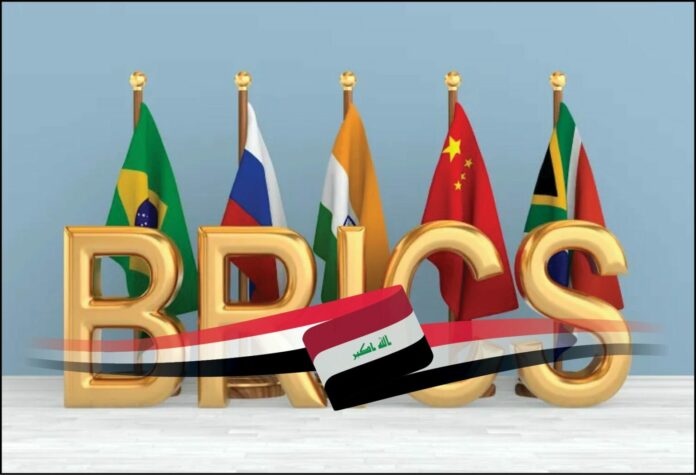Abdul Samad Saadoun Abdullah – Iraqi researcher
Executive summary
Currently, Iraq, despite having the stimulating qualifications to join the BRICS, faces obstacles and challenges in economic and political arrangements, which are not expected to be attractive in its short- and medium-term invitation to join unless it works to develop a plan aimed at preparing to create attractive opportunities for that group.
Achieving economic transactions and trade exchange between Iraq and the BRICS countries will enable it to achieve financial and monetary independence that contributes to the stability of the local currency. These countries are working to achieve a financial settlement in their inter-economic relations away from the dollar… But this depends on the sovereign dimension of Iraq’s ability to achieve financial independence for its oil revenues and arrange monetary settlements on this basis.
Iraq can benefit from the advantages of the energy weight it possesses, and its need to rebuild infrastructure, especially in the field of energy, to attract this group to open lines of communication.
Investing in the geographical location of Iraq will constitute one of the main elements in attracting these countries, as Iraq needs to review its economic plans as an important crossing in the region and to invest in the advantages of the geographical location that the country has, especially after the Iraqi government is moving towards the “development road” project and linking it to the initiatives of those countries formed for BRICS.
The advantages that the local market in Iraq has in being a heavy consumer of goods produced outside its borders, along with the average purchasing power of the Iraqi individual, and Iraq’s need for reconstruction can represent attractive elements to this group.
Iraq’s political roles, including the fragility of the internal situation due to the nature of internal political interactions and secondary roles as a regional player, will be less than a focus of interest to the BRICS countries. These countries are beginning to open up to Turkey, Iran, Saudi Arabia, Egypt, and Ethiopia, but they have surpassed Iraq.
Iraq will have to work to strengthen the roles and their integration with the candidate countries in entering the BRICS group from the geographical neighbors of Iraq, as the integration in the roles will give Iraq a leading role from the point of view of the BRICS countries. This approach will require, among other things, maintaining stable economic growth, adopting a sustainable and constructive development approach, and maintaining the social and political stability of internal conditions.
Since the BRICS countries do not share common denominations in many aspects, and the differences between the national and strategic elements of the BRICS countries can affect the future of this bloc, especially if the West decides to exert influence on some of its members, such as India or South Africa, on the other hand, Iraq must work to achieve harmony with those different denominations between the BRICS countries and benefit from the financing advantages created by the New Development Bank (NDB) based in Shanghai in China, which works to create effective financing opportunities in developing countries and emerging markets, provided that it is taken into account not to harm the sovereign interests of Iraq.
It would be in Iraq’s interest to discuss with the BRICS parties issues related to energy and export policies, and petrochemical industries intended for export outside OPEC, there are founding members of the BRICS who are influential parties in global energy policies, including Russia and South Africa. These parties are able to shape global energy prices and find additional channels and transactions for energy exports from Iraq.










